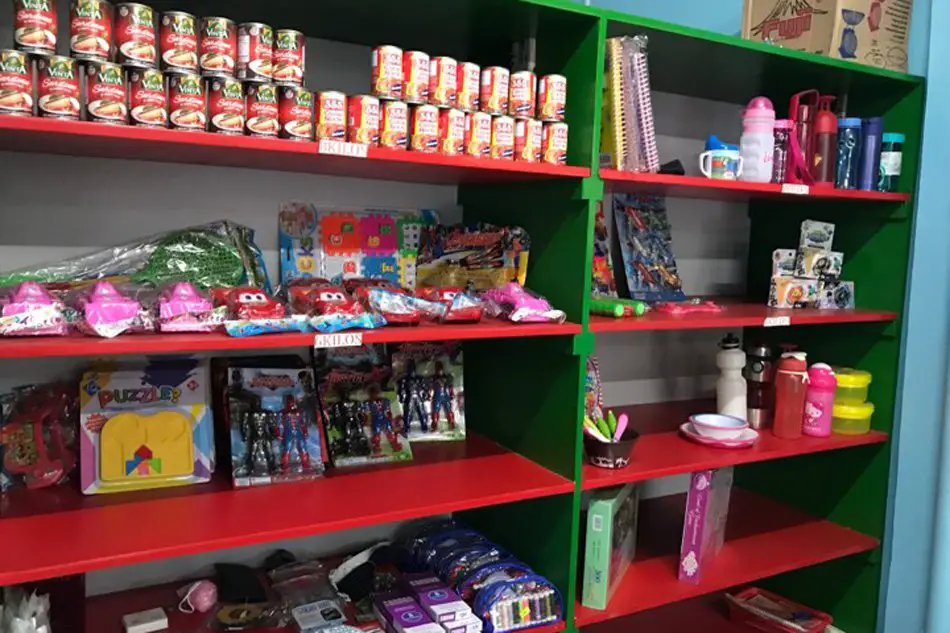Have you ever heard of a store that allows people to purchase food or goods without money? Yes, you can buy things without money—because what they ask for is plastic trash! Yes, this eco-friendly store in Cebu City is gaining a lot of attention from both the Internet and travelers because they might look like a regular store, but they’re actually different because they don’t ask for money—they ask for plastic trash!

Cebu City store unique payment scheme
This store in Cebu City is quite a dumbfounding store because they let people buy items from them in exchange for plastic trash.
Read: 2 Million People in Hong Kong Left a Clean Road After They Protested
The Plastic Barter Store is the name of this eco-friendly shop you can find in Cebu City. No other mention of this kind of shop was made but we’re sure that you can find it in the Visayan province.
Should you ever visit Cebu City, try to find the Plastic Barter Store; remember, though, that you don’t have to bring in money when you try to look for goods and food there—instead, you need plastic trash as your form of payment to the store.
When did this eco-friendly shop open?
According to CNN, the Plastic Barter Shop opened last 15th of June 2019. It’s just a newly-opened store—much more like a convenience store—and they offer a wide range of products that citizens and tourists can purchase.
Some of the goods they offer are:
- Canned goods
- Clothes
- Slippers
- Shoes
- Toys
- School Supplies
- Rice
Technically, you can think of it as an advanced and environmentally-friendly convenience store; the good thing? You don’t need money to buy! If you have plastic trash, you can use it!
The person in charge of the Plastic Barter Store, Gina Espenilla, said that a lot of people are benefiting from their store—some people, in fact, even get whatever they need for the day like rice.
Read: Bamboo Straws to be Used in Misamis Occidental
Mo linya gyud sila. Ang uban muhangyo ug bugas usahay kulang pa sa timbang pero ilaha ra pun-an inig sunod patimbang.”
In translation: Families from different part of the province queue up and ask for a lot of things but most families ask for rice. There are some even that don’t meet the weight we ask for in kilos of trash but we still give rice to them—they just need to make up for the missing weight on their next visit to the store.
What types of trash do the Plastic Barter Store accept?
Since the store accepts plastic stores, they accept different types of trash. What their plan is is to promote the recycling of plastic to be able to save the planet from the current effects we are currently experiencing.
They accept plastic garbage like:
- Shampoo bottles
- Plastic bottles
- Plastic bags
- Sachets
- Plastic wrappers
- Durable plastic
As per Espenilla, the plastic pieces they’ll be able to collect will be used for the production of hollow blocks. These products then will be offered and sold to construction firms in the country.
Read: PH Government Processing Proposed 22 Manila Bay Reclamation Projects
Yes, the recycling trait that the Plastic Barter Store is not just for projects—it’s going to be used and sold to companies who will be needing them. So, it’s actually a win-win situation for the stores because this is going to be the first time they’ll be offering these.
How much would the goods be in exchange for trash?
The store, that has the initiative to exchange plastic trash for goods or food, will have their own matrix on how much it’s going to be sold.
For instance, four (4) kilos of plastic trash can be exchanged to purchase one (1) kilo of rice. Furthermore, two (2) kilos of trash can be exchanged to get slippers.
Just like rice and slippers, two (2) to four (4) kilos of plastic trash can also be used to purchase school supplies.
Six (6) kilos of plastic trash will allow you to purchase toys; eight (8) kilos, on the other hand can be exchanged for either a pair of shoes or canned goods.
Read: Big Companies Offered to Help Clean Manila Bay and Other Rivers
In case you’re wondering, these goods are not bought by the store—these are donated mostly by non-government organizations (NGOs),private companies, and private institutions.
So, it’s not just profit that the store wants; their act in allowing people to exchange plastic trash for goods or food is also their way of promoting environmental protection and conservation as well as helping people in their purchases.